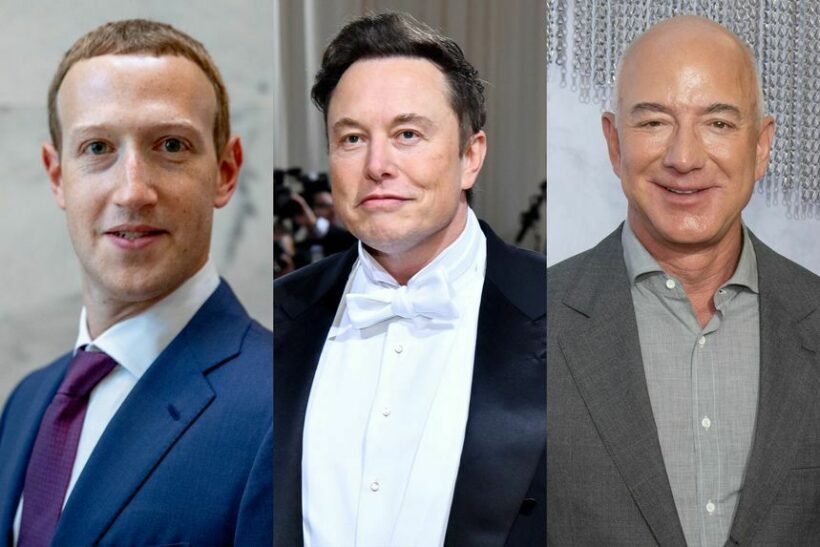Pandemic winners and losers – them and us

The pandemic has not been all bad. It’s wrong to look only at the downside of widespread death, fear and grief. There have been pandemic winners and losers. Some people have made a lot of money, and that’s no bad thing, is it?
According to Bloomberg, and Al Jazeera, as of yesterday, 131 billionaires had more than doubled their net worth during the pandemic. The world’s richest, Louis Vuitton chief Bernard Arnault, is now worth US$159 billion (5.5 trillion baht), up by around US$60 billion compared with early 2020. Handbags to the rescue.
Brother Elon has US$139 billion now: it was less than U$50 billion pre-pandemic.
And India’s Gautam Adani, third on the index, has seen his wealth increase more than tenfold in this period. And that is how it should be – India has suffered more than most from the ravages of the virus. Someone should benefit. It’s good to know that, financially at least, it’s not just sinister white guys.
During the same pandemic, near to 100 million people were pushed into extreme poverty in 2020 alone, earning less than US$1.90 (66 baht) a day. The global poverty rate is estimated to have gone up from 7.8% to 9.1%. Now, inflation is eating into food budgets around the world.
To fight inflation – they say – central banks are now starving the economy of money by increasing interest rates and withdrawing liquidity. So tech firms from Amazon to Alibaba and banks like Goldman Sachs (again) are sacking people left, right and centre, if they ever employed them in the first place. And the sackings run from top to toe, from R&D bosses, through coders to assembly workers in distant factories. The process is known as “optimising.”
Policies such as tax breaks and financial incentives for businesses boost economies in crises. Central banks flooded the economy with money to make it easier to lend and spend. The wealthy grew their money through financial investments. Oxfam found 143 of 161 countries analysed froze tax rates for the rich during the pandemic, and 11 countries reduced them.
A boom in the value of stocks, bonds and other financials wasn’t accompanied by an increase in economic production.
“Instead of leading to more economic output, a bulk of the sudden infusion of money into the financial system led to a dramatic rise in asset prices, including stocks, which benefitted the rich,” Francisco Ferreira, director of the International Inequalities Institute at the London School of Economics (LSE), told Al Jazeera.
Latest Thailand News
Follow The Thaiger on Google News:


























